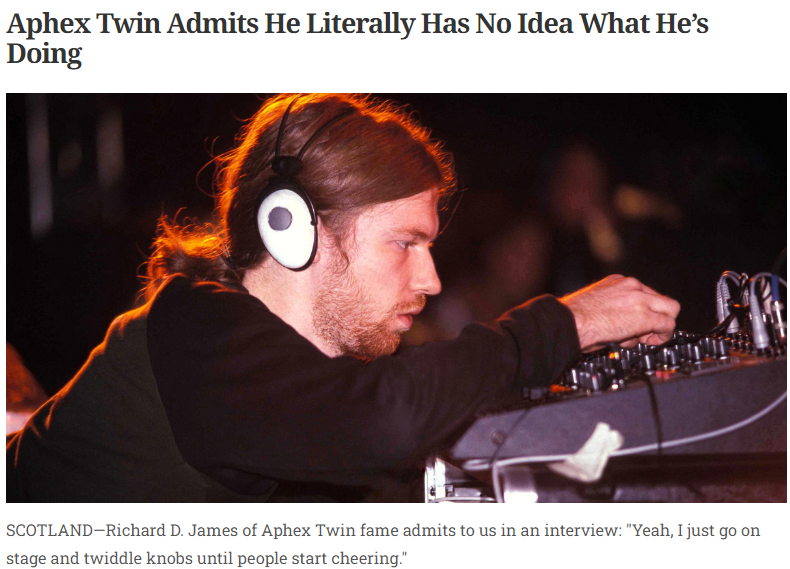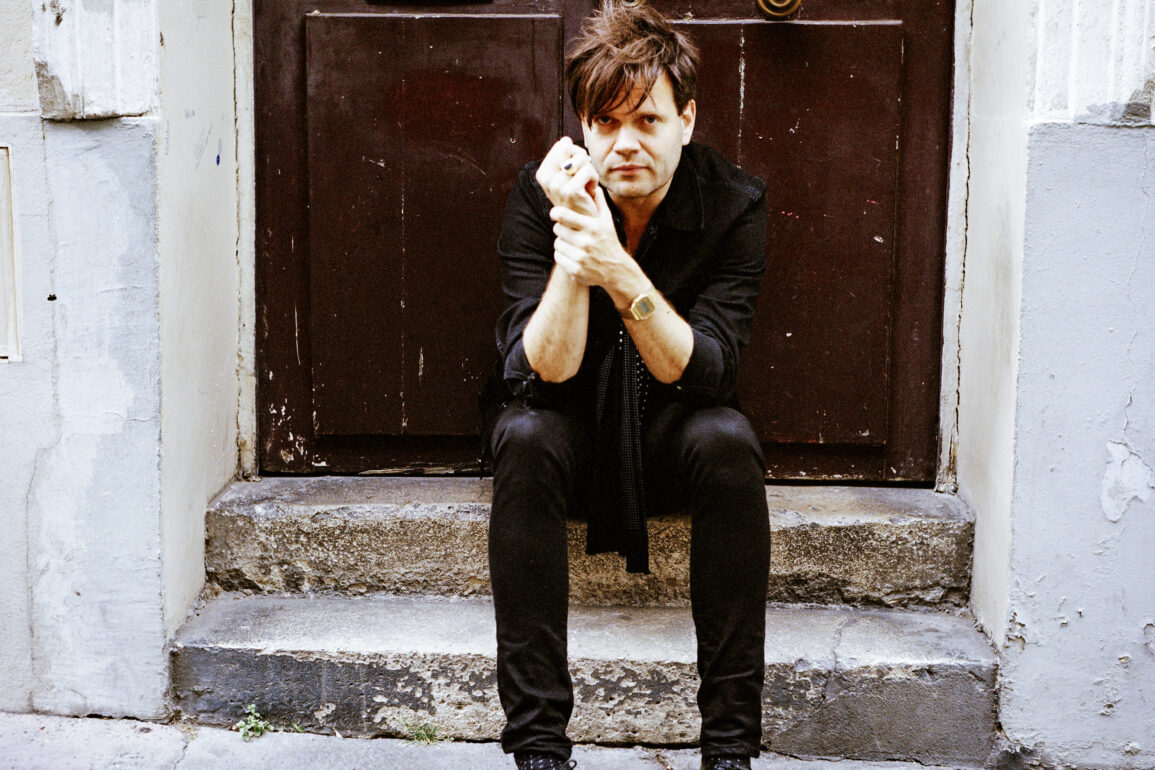Danish electronic producer/multi-instrumentalist Anders Trentemøller is back with his new album, Dreamweaver, out today. We had a chat with the man himself to find out more.
This is our second interview. We first met during your last Istanbul concert. What do you remember from that time?
I just remember that it was really nice to be back. I think we hadn’t played there for ten years. As far as I remember, it was a very passionate crowd, so we had a great time playing there. Then we had some fantastic food. I think that was before the show. Overall, really good memories. I also just love Istanbul. I’ve been there four times now.
Are you in Denmark right now?
Yes, I’m in my studio here in Copenhagen.
Autumn is nearly here, and it’s raining heavily in Istanbul. I wonder if it’s the same there.
Not really. It is actually quite warm today. It’s like 28 degrees, so it’s really humid, but I think there will be thunder later today, and now it’s beginning to get a little bit dark. But, you know, the whole light and the feel is a little bit different. So it’s definitely going into fall mode. I really love fall. It’s my favorite time of the year, to be honest, because I really love the atmosphere, the colors and everything. I can sit inside my studio without feeling bad, without feeling that I need to be outside and enjoying the sun. I also guess Istanbul has been super hot this summer because it has been so hot everywhere.
You guessed it right. It’s funny that you should mention fall being your favorite season, because that was actually going to be my next question.
Yeah. Maybe you can also hear it in my music. Fall has this kind of melancholic vibe to it. Also, my birthday is in the middle of October, so maybe that’s why I have always been a fall person.
I was born in October, too, so I think I get it. Obviously, the reason we’re here is your new album, Dreamweaver. I’ve heard it. Loved it, as usual. Before getting into that, I want to ask you something that I recently asked many artists: Do you have an active dream life? Do you often remember your dreams?
To be honest, I don’t. Sometimes I can remember fragments of what I have dreamt, but most of the time, not really. For me, making music is being in a dreamlike situation, a feeling that has a lot to do with the subconscious, I think. That is also the way that I’m writing music. I’m trying not to focus too much about what I’m actually doing, but just trying to let the thoughts go and just be in the music, nearly like being trapped in the middle of a dream. So that was also why I thought Dreamweaver was a great way of saying that all those elements from dreams and from the subconscious is weaved together and hopefully form this album to be like a little postcard from that realm, so to speak.
I guess no one can say for certain how much dreams actually factor into the music, but it’s always interesting to see some fragments, willingly or not, just penetrate into music.
Yeah. But I think it is the same thing with a lot of different art forms that you can control to some degree. For me, the technical side of it, the production, the writing process, the lyrics, and also the atmospheric side, are things that I actually try not to analyze too much. I really try to keep it magical in a way, and not talk too much about it, to be honest, because I really like that. It’s just something that I don’t have control over, because I have so much control over a lot of my life. So trying to be true to what feels right in the moment is something that I’m really working on.
That being said, it’s also a lot of hard work. It is not that I come into my studio and then just start having a subconscious flow and everything. Most of the time, I’m sitting in front of my piano here in my studio and just work and work. Sometimes, there’s an idea that I can use. So it is all about those little magical moments where you don’t think and the music just flows, like in a dream.
You are also an artist who does not work on a demo that doesn’t come into its final form for an extended period of time. At a certain point, you just let go if something doesn’t work well.
Yeah. That also goes quite well, I think, together with the idea of trying to capture what comes to you. Sometimes there can be weeks or even months where I’m not really inspired, and then it’s about trying not to panic. If you are trying to force your creative power, it’s never gonna happen, because then I get stressed and think too much about it. So it is very typical for me that if I take a break and don’t think about music, suddenly, there’s an idea. Suddenly there’s a melody or something. It’s very much about respecting that sometimes your brain also needs some rest, and you need to just be in the moment and don’t try to force anything. That is also why I quite rarely save old sketches. As you also said, if I’ve been working on a song for two or three days and it still doesn’t work, then I just go on and do something else. I might go back to the song, but that is very rare. Normally I just say, “Okay, now I tried to use some energy on that thing, and it didn’t work. Let’s move on.” It’s about killing your darlings, and just keeping on. Keep on trying to do something that gives you goosebumps.
I really like that you don’t obsess over stuff that don’t work and just move on. There is a quote that I really love that goes, “Art is never finished, merely abandoned.” You seem abandon songs that work at the correct point without overcomplicating them, as well as songs that don’t.
Yeah. When I start on a new album, I don’t want to go back to ideas that I had two years ago, because every album is like a picture of where I am now in my life. You should also remember that for me, making music is also fun, it should be something that feels fresh in a way. Most of the times, if it’s an old idea that didn’t work back then, most of the times it will not work two years later. So I really try just do something new and then see what comes up. If nothing comes up, that’s fine, I just have to wait some days and grab a beer with my friends or do something else, watch a movie or something.
Can you name a few memories attached to Dreamweaver?
This time was actually quite different compared to my other albums, because normally after a tour is finished, I’m feeling empty in a way because there’s been so many inputs and I’ve been together with my band and the crew for many months and I normally really need a break, but this time, I was super inspired. I think two days after I came back to Copenhagen, I started working in my studio, because I really had the urge to do something new. The album was not done quickly because it still takes time, but it was a bit easier for me to do it. I was so eager and hungry for doing new music after a long tour. Normally, I’m really afraid of starting working on new stuf,f because sometimes, to be honest, Ithink maybe I’ve totally lost it. Then I’m not inspired and think, “This might be my last album!” and I’m super-panicking sometimes. But this time, I had the idea for the new album, so it went quite easy. Of course, there were still times where I was going into a black hole and thinking, “Okay, this is not the right way. And it’s sounding awful. Maybe I should try something different.” But that’s part of the whole process. Of course, everything is not just gonna be okay immediately.
Working with Disa was really nice, she also played with me for the whole tour. I know her voice, so I had her voice in mind, abd that made it much easier for us to record the vocals because I did all the melodies and all the lyrics, except the lyrics for “Dreamweavers”, which is by her. Lyric writing was a challenge for me, because I started doing it on Memoria, the last album. Working with her, though, was very easy because we know each other, and it somehow just felt natural to do this album. Normally, there are three or four years between every album, but Dreamweaver and Memoria come only two years apart.
I want to ask you about the world of the synthesizers. I know you have Arturia MicroFreak in your collection, which I have as well.
Yeah, I also have one just over here. I really love that synth, because it can sound so lo-fi and weird. Are you happy about it?
Yeah, I’m happy. I heard one complaint about it from John Dwyer though, who said it does not translate well to a live setting.
Yeah. That is why I don’t use it live. Also I don’t like the keys, because I like real keys that I can press. So I am hooking it up with my MIDI keyboard in my studio and just use it as a sound module. But I love the different firmware updates that they did. I don’t really know what I’m doing, because I’m really bad at reading manuals, so I’m just turning knobs. I am not very technically knowledgable. It’s more about just seeing what comes out of it. Nearly all the synths on the “Dreamweavers” single was only made with that synth, then through a lot of plugins and my effect pedals, and stuff like that. I really like to take my synths and just reaim them through other things.
Funny enough, when I first heard the opening notes of “Dreamweavers”, my immediate thought was, “I may be listening to MicroFreak!”
With that intro, I wanted to mimic having this old FM radio and scrolling through the different bands. It’s also like zapping through a lot of television channels from back when you watch TV. I wanted that vibe. I actually added, very far in the background, some samples from TV shows. You can hear those if you listen very carefully.
The main thing I love about the synth world is that it opens a whole universe of possibilities where you can just go with the flow, without having much to do with technicality.
That has always been my approach. Not knowing what I’m doing is actually quite nice for me sometimes. Of course, I know how to use an EQ and even a compressor. I turn knobs and then see where it takes me. That’s also why I don’t like stuff that has a lot of dive menus, where you have to go into a menu and then another menu under that, When that happens, I’m totally göne, because I want to use the time on creating the atmosphere that I have in mind.
Your answer reminds me of this Aphex Twin meme:

Yeah, absolutely. I can certainly relate to that, of course. And as we talked about, I just hopefully let them ideas flow and try not to analyze too much what you are doing. That’s fine with me when I have gear that’s quite simple, and even the MicroFreak can be quite complex, you know, if you go into all the stuff. I just like to see what comes out of it.
In your gear collection in general, do you have a really obscure item that you think more people should know about?
I don’t really use something that’s rare. What I’m using quite a lot is my old 4-track TASCAM cassette player from the eighties. I think it sounds bad in a way because there’s a lot of noise and flutter, because it’s not really functioning 100%, but I really like that. The pitch goes up and down. You can also do that with plugins, and I’m also using lo-fi plugins to achieve my sounds, but this thing just has a special sound that I cannot recreate in my computer. It has some warmth and of course, it is analog. I’m hitting it quite hard and using it as a distortion pedal.
I know that you have done soundtrack work in the past. If you had the chance to work with a director for a soundtrack, who would be your first choice?
That would be David Lynch. A lot of artists might say the same, because his way of using music and sounds, as well as the sound design in his movies are just excellent. Again, his movies are a lot about the subconscious and there are a lot of layers in the stories. A movie like Mulholland Drive is crazy, I still don’t understand what it’s about, but I love every second of it. I’ve watched it ten times, you know. And if i’m correct, Twin Peaks: Fire Walk With Me just turned 30 years. That is also one of my favorite movies. Of course, the whole Twin Peaks thing is still a fantastic universe to go into. So yeah, if David Lynch reads this, I’m up. (laughs)
When I hear your music, I often think that it’s Lynchian. I think it would really fit his work.
Badalamenti, however, just was the perfect match for him. Unfortunately, he’s not with us anymore. I loved all the stuff that he did with David Lynch, and you cannot actually think about David Lynch without thinking about his music. They are one. That was also why he always used him, I think, because he really contributed so much, not only to the story, but also to the atmosphere and the vibe. I’m a huge fan of both of their works.
If you have the chance to access your streaming platform right now, I want you to check the last three songs you streamed.
There is a song by an artist called Tanukichan, called “The Best.” The second is from a guy called Rozey from the States, called “If I Come Home.” The last is by a band called Belong. They just released a new album, and the track is called “Souvenir.”
I was actually also listening to them because I’m now working on my next album. Sometimes I compare my sound to sounds that I love to see if the bass is right, if the chop is okay. They are reference sounds.
It’s nice to close the interview on a note where you explain the influences on your next album.
While I’m doing my albums, I try not to listen to other artists’ music that much because then I kind of get confused, I sometimes try to sound like them. So I didn’t really listen that much to other people’s music. But of course, as always, there are bands like The Cure, Joy Division, The Velvet Underground, and Slowdive that are definitely part of my DNA because I grew up listening to them. And even if it’s something that you cannot hear in the music directly, I’m inspired also by some classical music and folk music, I listen quite a lot to Nick Drake. You can maybe hear that on the first song, “A Different Light.” I was inspired by his distinct playing, but it was not something I listened to while I was working on the album. Because I’m socially in my own world when I come home from the studio and I’m just tired of music. I’ve been using my ears all day, so when I have some spare time, I’m mostly listening to radio about politics and news and stuff like that. But the music that I have been listening to since I was a teenager is always with me.
You can check out Trentemøller’s Bandcamp page here.



